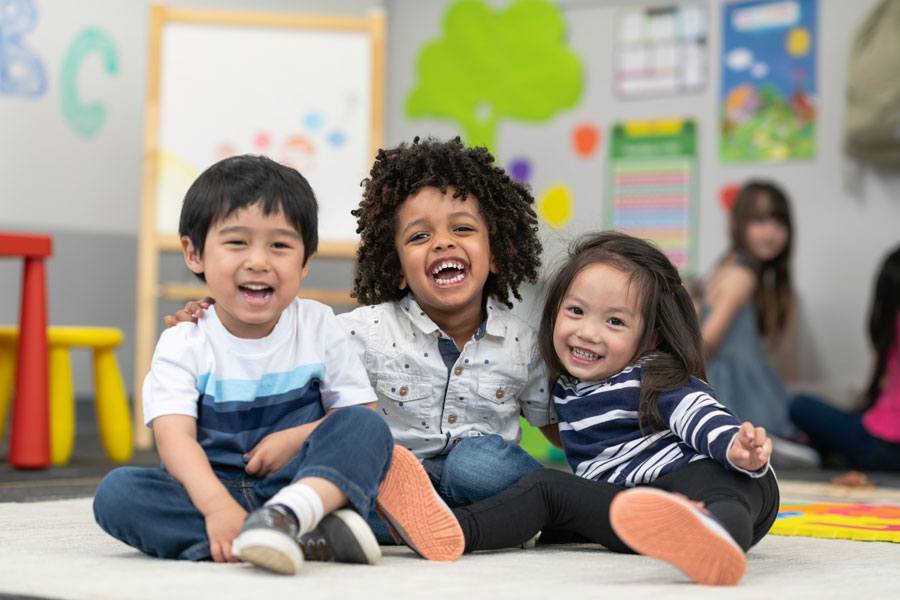Six Ways to Be a Good Friend for Life
After years of nurturing budding friendships, a Philly preschool teacher shares the secrets to making them last.

Mary Beth McNeish Fedirko nurtures friendships as a preschool teacher in Philly. Here, her advice for how to keep friends for life. Photograph by FatCamera/Getty Images
For nearly two decades, Mary Beth McNeish Fedirko has been nurturing budding friendships as a preschool teacher at the Philadelphia School. Here, she shares universal tips for how to be a good friend no matter your age.
1. Be a good listener
“We teach the kids that being a good listener is being an active listener,” says Fedirko. Active listening means using body language — facing your friend, making eye contact — and offering sound props to signal that you’re focused. You don’t always have to give advice, though. Ask your friend: “Do you want me to weigh in, or do you just need to vent?”
2. Check in
After kids get into a tussle in her classroom, Fedirko tells them, “You should check in on your friend and make sure he’s okay.” And it’s meaningful for adults, too. Check in on the big or small things happening in your friends’ lives to show you think about them. It doesn’t have to take much time — sending a text takes seconds.
3. Try things that interest your friend
“We often tell our kids, ‘Why don’t you ask your friend what she wants to play?’ so they understand it’s not always about what they want, but learning what somebody else wants to do,” says Fedirko. Trying something a friend loves offers an opportunity to learn more about her and deepens the friendship and trust in the process. When you flounder through a friend’s favorite Zumba class or read a book by an author she admires, you’re also signaling that her interests are important to you.
4. Laugh with them
“Many times, kids first connect in my classroom not through a string of words, but through laughter,” says Fedirko. “They build a block tower, one of them knocks it down by accident, then they look at one another and burst out laughing. Believe it or not, that’s the start of a lifelong friendship.” Physiologically, laughter releases a flood of endorphins that register as feelings of pleasure and well-being, and we want to revisit those feelings with whoever made us laugh. Cultivate laughter at a comedy show or by streaming the new Ali Wong Netflix special together — the adult versions of a falling block tower.
5. Celebrate their victories
Fedirko’s preschool kids take turns sharing their work with the class to practice oral presentation skills, and a big part of the lesson is meant for the audience: “When you can create a hub of support, celebrate victories, and lift people up, it goes such a long way in boosting someone’s confidence.” When your friend has triumphed in some way, be there to celebrate her and honor her achievement.
6. Keep their secrets
Fedirko admits that four-year-olds aren’t great at this, noting, “They’re the biggest gossips!” But it’s a pillar of being a good friend. “When friends realize that you’re an excellent confidant, they’ll share more with you,” she says. And even if the goal isn’t reciprocity, confiding meaningful info about your life helps build trust, which is a foundation of every relationship.
Published as “Six Ways Not to Lose a Friend” in the TKmonth TKyear issue of Philadelphia magazine.


